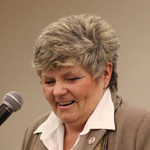
In 2017, Canadians are celebrating the 150th Anniversary of Confederation, but do Canadians fully realize the work and effort that went into the British North America Act of 1867 – or what that document actually stands for?
As far back as 1859, and before, the elected officials of the province of Canada (Ontario and Quebec), Nova Scotia, New Brunswick, Prince Edward Island and Newfoundland had been discussing in their own governments, as well as with other colonial governments, the union of some or all of these provinces, with the intent of bringing the Western and Northern Territories into that union. In 1863-1864 the Eastern provinces (colonies) decided to move on this initiative and there was a proposed meeting in Charlottetown to begin the discussions.
The province of Canada had not originally been invited, but John A. MacDonald contacted the meeting delegates, prior to that meeting, asking if the representatives of Canada could attend. It was felt, by all, that it would be a stronger union for defence and prosperity if all could have a seat at the table.
The elected representatives who attended this meeting were from various political stripes, including Liberals, Conservatives and Independents. The range of these men ranked from a Lieutenant Governor to Ministers of the various governments and even those without specific ranks – but these men knew to be successful all of the politics; all of the ranking would have to be left at the door. This was not for their own political parties and it was not for their own self-gratification – this was for the growth of a Nation and the benefit of the people that these men represented. There was great animosity between some of the participants as George Brown and John A. MacDonald could barely be in the same room with each other but these men, and in particular, George Brown, swallowed their pride and political aspirations to make this Country a Nation. John A. agreed that Brown was essential to an equitable process. It was stated in the book “Confederation; or, the Political and Parliamentary History of Canada from the Conference at Quebec, in October 1864 to the Admission of British Columbia, in July 1871,” by the Hon. John Hamilton Gray, D.C.L., MP. in 1872:
“Mr. MacDonald replied that he considered it would be essential that Mr. Brown himself should become a Member of the Cabinet, with a view to give guarantees to the Opposition and to the country for the earnestness of the Government…he thought it would be necessary that Mr. Brown himself should, in any case, be identified with the negotiations that would necessarily have to take place, and that, if he did not himself enter the Cabinet, he might undertake the mission to the Lower Provinces, or to England, or both, in order to identify himself with the action of the Canadian Government in carrying out the measure agreed upon.” (p. 21-22)
The meeting in Charlottetown finished to some extent with the representatives having to take their work back to their legislatures for debate and it was decided, at the Charlottetown meeting, that another meeting would have to happen for the finalization of the draft constitution to be taken back to the United Kingdom for enactment. The Quebec meeting was called for October 1864 where 72 resolutions where decided as the foundation of the British North America Act. This was the beginning of Canada, as a colony of the United Kingdom, which eventually became this great Nation we live in today!
If not for these great men, Canada may not have been created but they had the vision. And to give birth to that vision they had to leave their egos at the door for the betterment of the people – that is what good government is. Too bad our elected officials today, seem not to have the integrity of these men, as it has been stated in, “Government in Canada. The Principles and Institutions of our Federal and Provincial Constitutions. The B.N.A. Act, 1867, compared with the United States Constitution, with a Sketch of the Constitutional History of Canada. Preface to the First Edition, p. x.,” by D. A. O’Sullivan, M.A., D.C.L.:
“The writer has faith in the political morality of our leading statesmen to the extent, at least, that no one of them, acting in an official or, as may be said, a judicial position—as advisers of the crown, as trustees of the constitution—would permit his judgment to be biased by a mere party spirit, or for a temporary party triumph. If it be otherwise in Canada, then it is time we were governed without party, as that term is now understood.”
Perhaps with the Celebrations for the 150th Anniversary of this Great Nation our elected officials will contemplate the greatness of those who came before them and begin to uphold the Constitution as it was meant to be! Happy 150th Anniversary to the people of Canada – the great Nation battered but not beaten!
